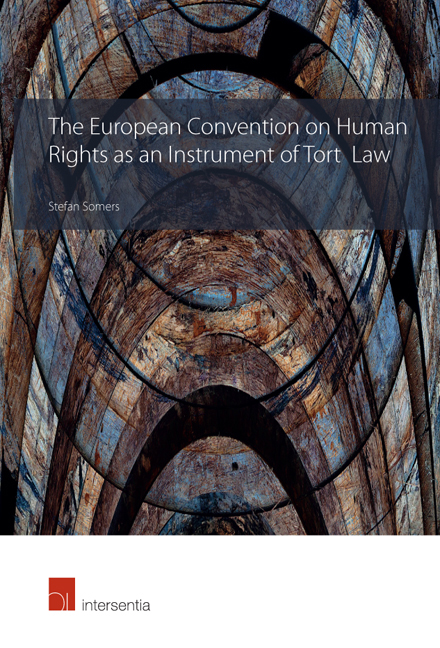Book contents
- Frontmatter
- Dedication
- Contents
- List of Cases
- Introduction
- Chapter 1 Human Rights in Horizontal Relations
- Chapter 2 Articles 13 and 41 ECHR and State Liability
- Chapter 3 The Interaction between Articles 13 and 41 ECHR and Liability in Horizontal Relations
- Chapter 4 Tort Liability as a Violation of Human Rights
- Chapter 5 Article 41 as an Alternative Tort Law System
- Chapter 6 General Outline of Article 41 of the Convention
- Chapter 7 Damages
- Chapter 8 Fault and Blameworthiness
- Chapter 9 Causality
- Chapter 10 Restitution
- Conclusion
- Bibliography
- About the Author
Chapter 4 - Tort Liability as a Violation of Human Rights
Published online by Cambridge University Press: 31 January 2019
- Frontmatter
- Dedication
- Contents
- List of Cases
- Introduction
- Chapter 1 Human Rights in Horizontal Relations
- Chapter 2 Articles 13 and 41 ECHR and State Liability
- Chapter 3 The Interaction between Articles 13 and 41 ECHR and Liability in Horizontal Relations
- Chapter 4 Tort Liability as a Violation of Human Rights
- Chapter 5 Article 41 as an Alternative Tort Law System
- Chapter 6 General Outline of Article 41 of the Convention
- Chapter 7 Damages
- Chapter 8 Fault and Blameworthiness
- Chapter 9 Causality
- Chapter 10 Restitution
- Conclusion
- Bibliography
- About the Author
Summary
The previous chapters illustrated that the Convention can influence tort law via the theory of positive obligations and the requirement of an effective remedy. But the Convention can also influence tort law in a whole different way. While the previous chapters also illustrated how tort law can serve as an effective remedy in case of a violation of human rights, tort liability can also violate the treaty rights of the liable person.
The most distinct example of a tort liability that was in violation of human rights can be found in Tolstoy Miloslavsky. The applicant in this case was a British historian who had issued a pamphlet entitled ‘War Crimes and the Wardenship of Winchester College’. In this pamphlet, he argued that Lord Aldington, the administrator of the prestigious Winchester College, was responsible for the extradition of almost 70,000 persons of Yugoslavian nationality to the Communist regime of Tito and to Russia. Mr Tolstoy distributed this pamphlet among the personnel of Winchester College, the students of the college, their parents, members of parliament and the press. Lord Aldington pressed charges before a civil court for libel. The procedures in this case were very complex. In short, Lord Aldington won the case and received damages of L 15 million. For an appeal to this judgement to be admissible, Mr Tolstoy had to pay Lord Aldington a guarantee of L 124,000 for damages and L 22,000 as a guarantee for the litigation costs in higher appeal. Mr Tolstoy challenged this decision before the Court. He argued that the guarantees he had to deliver in order to lodge an appeal violated his right to be heard by a judge and that his freedom of expression was violated because he had to pay L 1.5 million in damages. The ECtHR did not establish a violation of the right to be heard by a judge but found a violation of Art. 10.
With regard to the violation of the freedom of expression, Mr Tolstoy brought two arguments. He first argued that the damages were not prescribed by law (as Art. 10, § 2 requires).
- Type
- Chapter
- Information
- Publisher: IntersentiaPrint publication year: 2018



